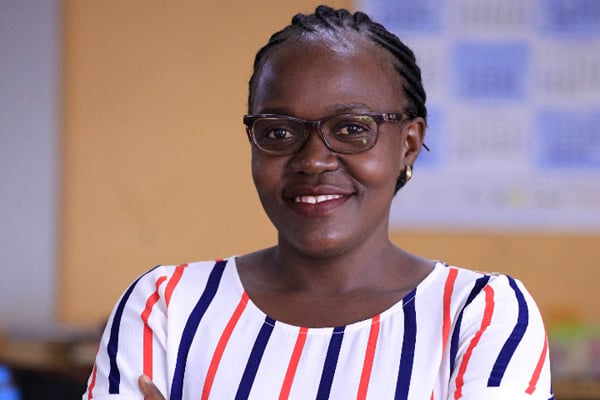Kampala twin bombing: Six to face trial for terrorism, murder

People extinguish fire on cars after a bomb exploded at Parliamentary Avenue in Kampala on November 16, 2021. Photo | File
What you need to know:
- According to the indictment, Kyeyune was trained by another co-suspect Musa Kabanda alias Musomesa into Jihadism (religious wars), Islamic doctrines, karate, how to use guns and manufacture improvised explosive devices before he went on to pledge allegiance to Islam and ADF.
Six men who were arrested in regard to the June 2021 Kampala bombings have been committed to the International Crimes Division of the High Court for trial for murder and terrorism.
Buganda Road Chief Magistrate, Mr Ronald Kayizzi committed the six suspects to face trial in at the next convenient session after they spent one and half years on remand.
“You are hereby committed to the High Court for trial. You will have the chance also to raise your issues to be addressed in the same court. In the meantime you will be further remanded until you will be called by the High Court,” Mr Kayizzi held.
Those committed are; Kyeune Isma, Walusimbi Musa, Mubiru Musa, Kabanda Musa, Mwebe Muhammad and Kabong Umar Ajobe.
The group is accused of Terrorism Financing and professing to belong to a terrorist organisation.
The suspects were arrested in May 2022 after the government received intelligence information that several people were engaged in carrying out Terrorism activities mostly in the Central and Eastern parts of Uganda and the DRC.
The information led to the arrest of the six suspects who are said to have confessed to rendering financial and recruitment support to the ADF.
According to the indictment, Kyeyune was trained by another co-suspect Musa Kabanda alias Musomesa into Jihadism (religious wars), Islamic doctrines, karate, how to use guns and manufacture improvised explosive devices before he went on to pledge allegiance to Islam and ADF.
Documents tendered before the court indicate that Kyeyune and another recruit Mwebe Muhammad were each given a pistol with 30 rounds of ammunition to look for money to support the ADF.
It is alleged that upon arrest, Kyeyune Musa confessed to several cases of robbery including stealing Shs130 Million from Mawanda Road, a Laptop, $300 from a Congolese on Salaama Road and sent all the money to DR Congo to support ADF activities whereas Kabanda Musa aka Musomesa confessed to carrying out recruitments and rendering support inform of food and finances to the wives of the trainees.
Evidence presented to court further shows that Kabanda was first arrested in 2012 from the Kampala High Court building while recording car number plates of the Judge and prosecution personnel who were handling the trial of the 2010 Kampala bomb suspects who killed about 76 people at Kyadondo Rugby grounds and the Ethiopian village in Kabalagala, Kampala.
It is stated that Kabanda told investigators on arrest that he got instructions from one of the 2010 bomb suspects Hussien Agade. He was charged and granted bail but fled till he was re-arrested in 2022.
Further indictment details show that Kabanda revealed that he would carry out the trainings at the home of Kabong Umar in Luwero District where an underground tunnel had been dug. On arrest Kabong too confessed to being a member of the ADF rebel group in which he also enlisted his 2 young sons aged 8 and 12 years.
Prosecution alleges that between 2007 and 2020, the six and other suspects still at large in areas of Central, Eastern Uganda and DRC, provided funds and rendered support through recruitment and training to ADF well knowing that the support would be used to instigate acts of terrorism.
The state intends to adduce evidence that in 2018, Kyeyune Musa was a notorious robber in Kampala from where he was spotted by co-suspect Walusimbi Musa and recommended him to be recruited in ADF to rob money to support rebel activities .
Prosecution also told the court that it will heavily rely on telephone data records to prove that the six suspects knew each other, confession statements, ballistic and scenes of crime reports, guns and improvised explosive devices recovered from Kabong's home to prove the case against the suspects in the High Court .





